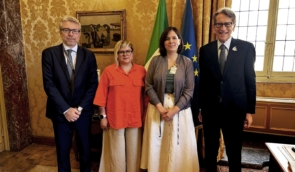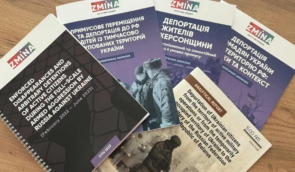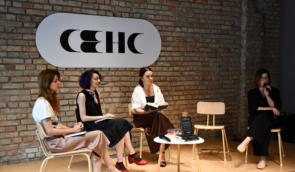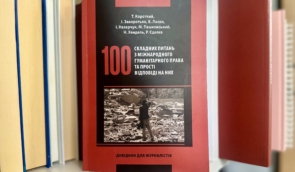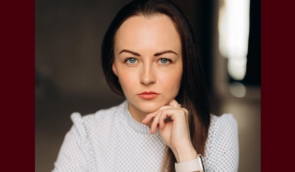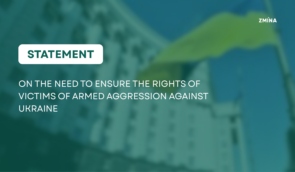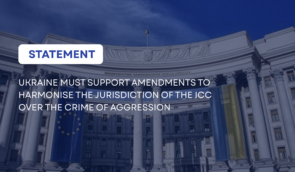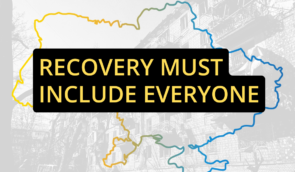Businesses, representatives of the public and state bodies sought joint opportunities to work on transitional justice
On February 20 as part of the media marathon “10 years of Russian aggression in Ukraine. Path to Justice” held a discussion panel “10 years of Russian aggression: remember the future”, the participants were: representatives of state bodies, civil society organisations, lawyers and business representatives.
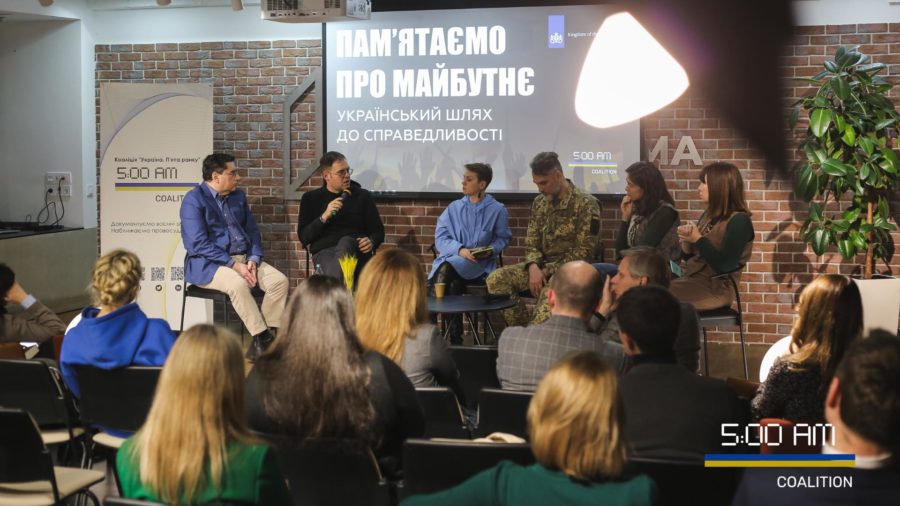
The event was held by Ukraine 5AM Coalition. The speakers were the Permanent Representative of the President of Ukraine in the Autonomous Republic of Crimea Tamila Tasheva, the Deputy of the Permanent Representative Olha Kuryshko, the expert of the Ukraine 5AM Coalition, a partner of AO Azones Daria Svyrydova, a journalist and founder of NGO “Public Interest Journalism Lab” Natalka Humeniuk, a deputy of the director of the Ukrainian National Centre for Peacebuilding for Documenting War Crimes and a serviceman of the Ukrainian Armed Forces Oleksii Bida, the CEO of Dentsu Ukraine Oleksandr Horokhovskyi.
As the organisers of the event noted, the years of full-scale war deepened the challenges facing Ukraine since 2014, in particular the problem of occupation of territories. Currently, Ukraine does not have ready-made solutions for most of the issues provoked by the 10-year war.
Therefore, the participants of the panel were looking for solutions and talked, in particular, about transitional justice and the search for justice, which every Ukrainian demands. Another important topic: not only the restoration of the state in the de-occupied territories, but also the reintegration of people who lived for years under occupation and surrounded by constant Russian propaganda.
They were also talking about the fact that Ukrainian society has a demand for non-judicial ways of achieving justice. Citizens do not want those who compromised themselves by collaborating with the enemy to be in state structures after the end of the war. At the same time, it is important to talk about the responsibility of the criminals who supported the occupation regime, and not to blame and persecute all the people who remained living in the occupation and were forced to survive there.
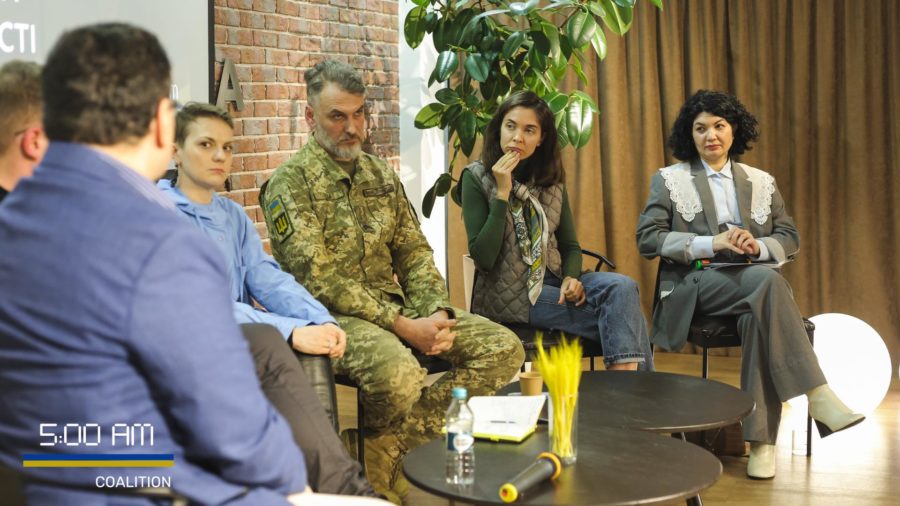
As the speakers of the event noted, among the difficult challenges for society and the state is to develop a vision and consensus regarding responsibility for collaborationism.
Olha Kuryshko noted that transitional justice and issues related to it are a joint matter of representatives of various spheres of activity and they should be coordinated.
If you have found a spelling error, please, notify us by selecting that text and pressing Ctrl+Enter.

